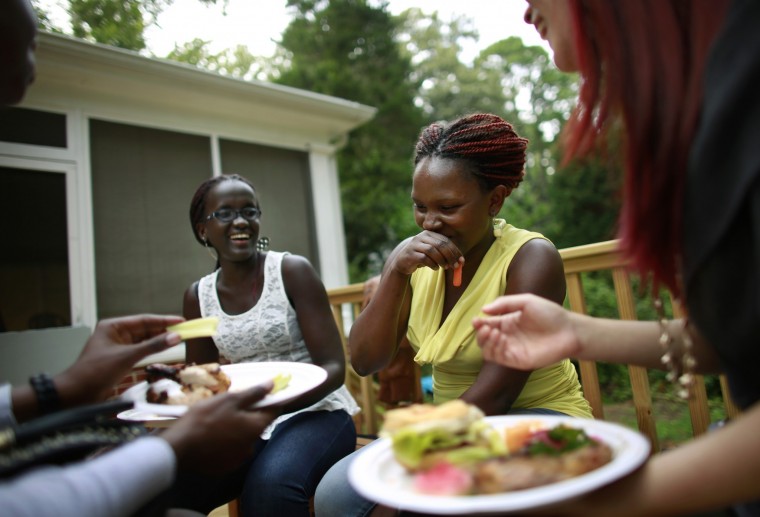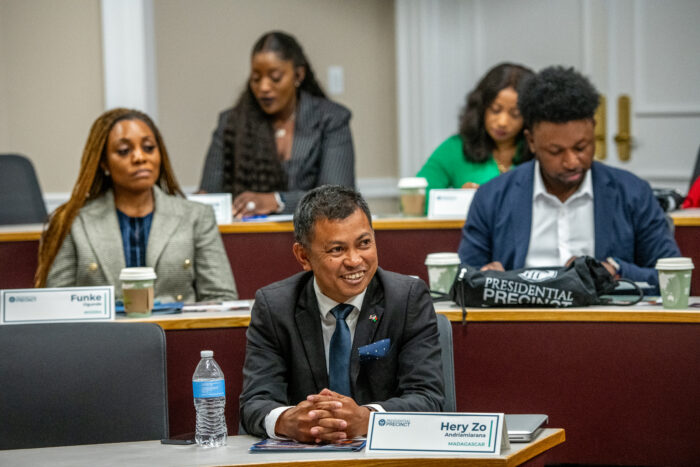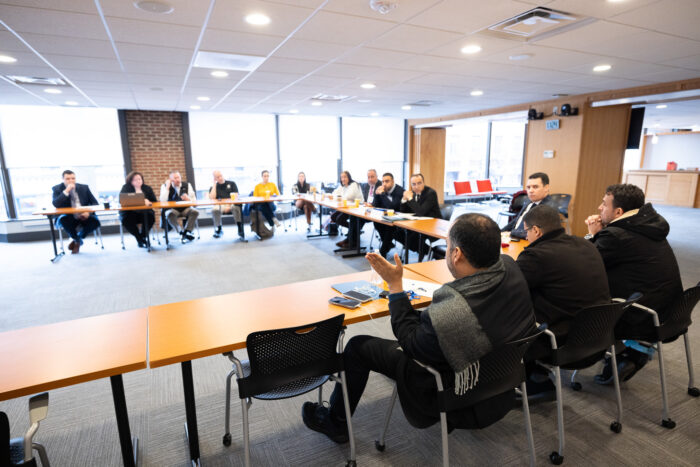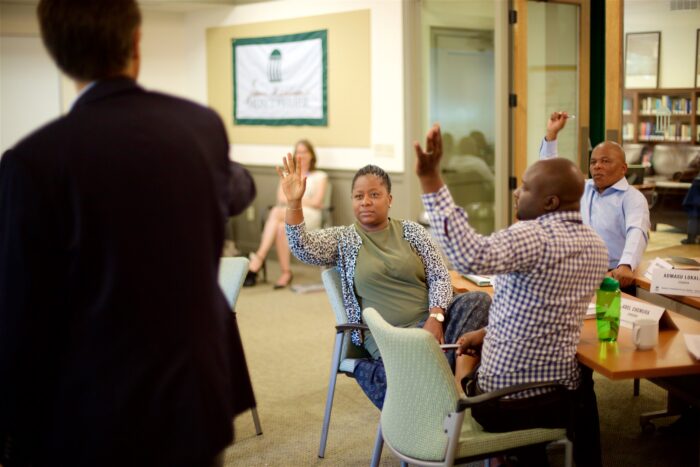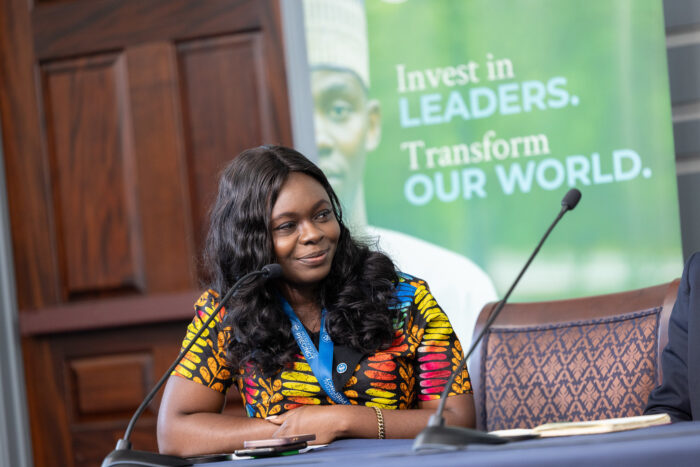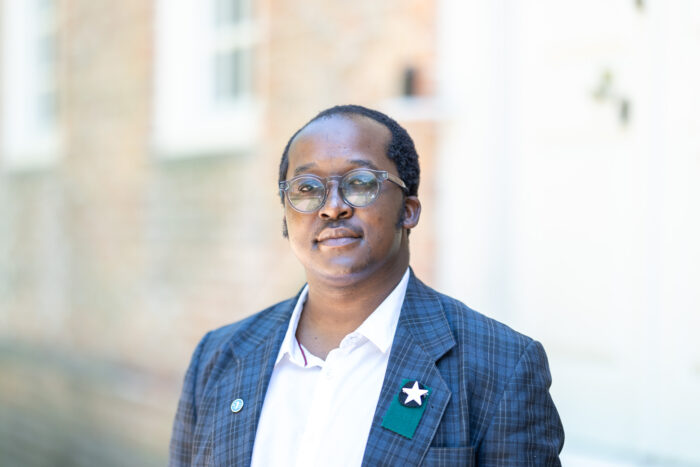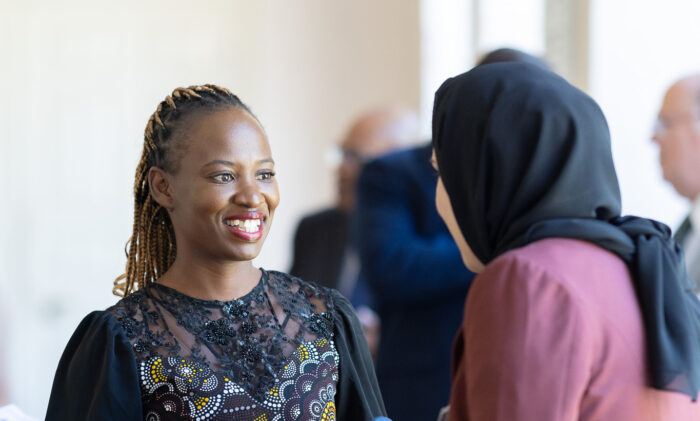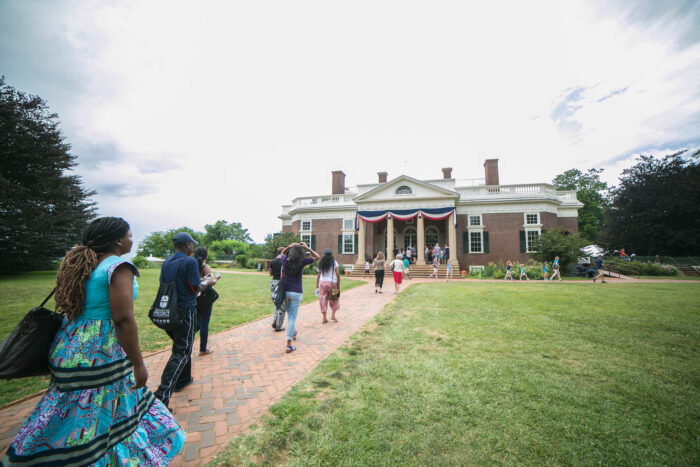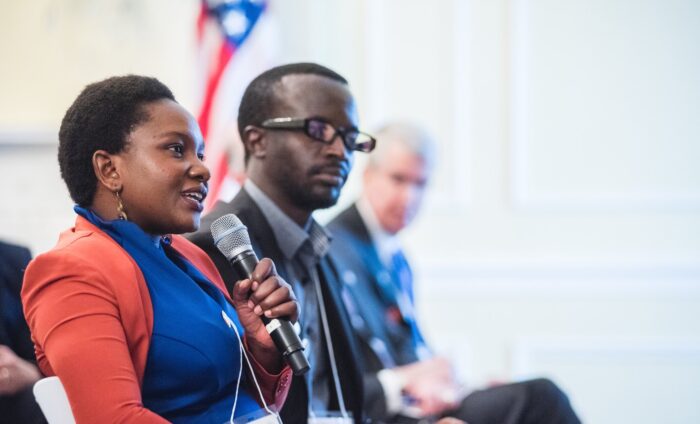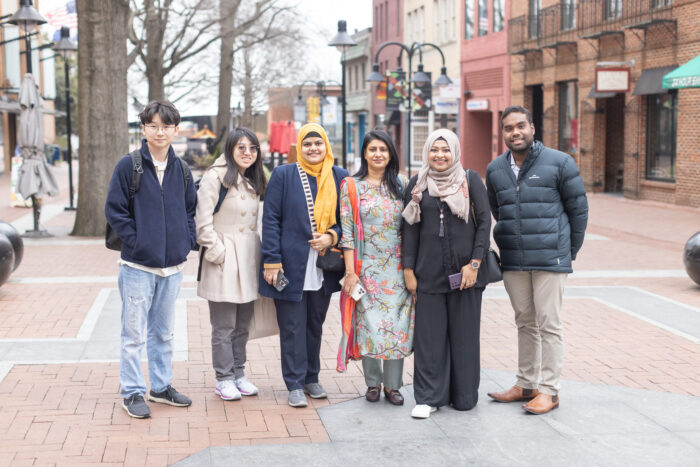Future African leaders get crash course in U.S. history
Originally published by the Virginian Pilot.
For Emmanuel Ndlovu and Edmar Nhaga, their tours of the homes of America’s Founding Fathers were rich with symbolism.As they walked through the carefully preserved mansion house at Montpelier, President James Madison’s plantation in Orange County, they weren’t allowed to touch anything or take any pictures.But when they toured a nearby slave cabin, the place was wide open. They had free rein to do as they liked.For the young Africans, the contrast says something about how America deals with the legacy of slavery.
The slave who lived in that cabin was a man, too – just like Madison, Ndlovu said: “They are disrespecting part of their history.”
Nhaga added: “The Declaration of Independence says all men are equal. They should give the same degree of respect to all.”
Ndlovu and Nhaga are among 25 young people from 18 African countries who are spending six weeks in Virginia as part of President Barack Obama’s Young African Leaders Initiative, an outreach effort aimed at fostering democracy, entrepreneurship and sustainable development on the continent.
Across Africa, there were 50,000 applicants for the 500 prestigious fellowships, which are funded by the U.S. State Department and several corporate sponsors. Their demographic, ages 25 to 35, represents the future of Africa, where nearly one in three people is between 10 and 24, and 60 percent of the population is under 35.
The Virginia fellows began the program at the University of Virginia last month and have been at the College of William & Mary for the past week. The program will conclude next Monday with a White House reception hosted by the president.
The intensive schedule has been packed with lectures, workshops and roundtable discussions, leavened with dips into American culture ranging from barbecues to cornhole to Wiffle ball.
The fellows’ backgrounds are as diverse as their countries of origin. The group includes teachers, journalists and human rights activists.
“These are people who are thought leaders in their countries,” said Scott Ickes, the program’s academic director and an assistant professor of international nutrition and epidemiology at William & Mary. “We’ve been able to learn from each other.”
Perhaps unique among their counterparts who fanned out across the country, the Virginia fellows have had the opportunity to walk in the footsteps of the men who shaped the American republic. They have spent time at the homes of three of the nation’s first five presidents: Thomas Jefferson’s Monticello, Madison’s Montpelier and James Monroe’s Ash Lawn-Highland.
All three were patrician planters who espoused high ideals of equality while profiting from the labor of slaves. The takeaway: The road to full equality – whether in America or Africa or anywhere else on the globe – can be long and rocky.
“In terms of the racial divide, America is still way behind because of the history of slavery,” Ndlovu said. “It has not yet overcome that dark past. There are still deep-seated inequalities.”
That outspokenness is typical of the African fellows. Five weeks into the program, they have developed an easy camaraderie. A class in leadership skills last week was punctuated by frequent ribbing, laughter and pointed questions to the instructor.
Ndlovu, 28, works with a residents’ advocacy organization in Bulawayo, the second-largest city in Zimbabwe. Nhaga, 32, leads a human rights group in Bissau, the capital of Guinea-Bissau.
“This is a very important program for us,” Nhaga said. “I have no words to describe it.”
He and Ndlovu said they are acquiring valuable skills for advancing democracy and human rights when they go home. In both of their countries, the challenges are daunting.
In Zimbabwe, authoritarian President Robert Mugabe, 90, has held power continuously since independence in 1980. The United States has imposed targeted sanctions on the country for its anti-democratic tendencies.
Guinea-Bissau has a long history of political instability, illustrated most recently by a military coup in 2012 that prompted a cutoff of American aid. The United States maintains diplomatic relations with the country, but has no embassy there.
If they have a chance for a dialogue with Obama next week, Ndlovu and Nhaga said, they will urge him to seek improved relations with their countries. They believe engagement and dialogue – not isolation or confrontation – represent the best path to a more democratic future.
Some might think it impertinent to give the president advice. But the young Africans have been inspired and emboldened by their exposure to America’s democratic institutions.
“Here, people can voice dissent, speak out, question authority,” Ndlovu said. “It’s something I want to replicate back home.”

